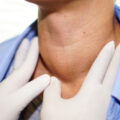Dental problems are common. There are a ton of them, and some can be very dangerous. Unfortunately, many people typically tend to ignore problems with their teeth and gums. Such behavior can be very dangerous because some dental problems are life-threatening. For example, untreated tooth loss sometimes causes oral cancer. You shouldn’t neglect oral problems. Instead, consider reaching out to a dental specialist to effectively eliminate them.
Keep reading to learn what dental problems are the most common and the ways of treating them.
1. Cavities
Tooth decay and associated cavities are common problems caused by poor oral hygiene. They imply that the tooth surface develops small holes. If left untreated, they become bigger and deeper. As a result, you may lose the tooth. According to the Centers for Disease Control and Prevention, 90% of people in the United States aged 20 and over have had cavities at least once in their lives. Symptoms of tooth decay may include:
- Sensitivity
- Toothache
- Holes in your teeth
- Stained teeth
There are several methods of treating decayed teeth, including tooth fillings, dental crowns, and root canal. To prevent this problem, you should maintain good oral hygiene and eat healthy foods.
2. Gum disease
Gum disease is a medical condition that is one of the most common dental problems. According to the Centers for Disease Control and Prevention, more than 47% of adults in the United States aged 30 and over have some form of gum disease. Gum disease implies an inflammation of gums that is caused by poor oral hygiene. This condition is the most common cause of tooth loss. Failure to practice proper dental hygiene can lead to dental plaque forming on the surfaces of your teeth. This plaque will eventually harden into a darker deposit called tartar. Plaque contains a big amount of bacteria. When this bacteria contacts the gums, you’re at higher risk of getting gum disease. Gum disease has two main forms. It starts from gingivitis and gradually transforms to periodontitis. People with gum disease may experience:
- Sensitive teeth
- Tooth loss
- Pain while chewing
- Swollen gums
- Bleeding gums
- Bad breath
- Dental abscess
Gum disease can be treated by medications, professional dental cleanings, or even surgery. To prevent it, you should maintain proper oral hygiene and eat a healthy diet. This is a serious disorder that can cause serious complications, potentially affecting your further life. If you have noticed any strange changes in your gums, contact a periodontal clinic to solve the problem.
3. Bad breath
Bad breath, or halitosis, affects everyone at some point in their life. This condition can be temporary or permanent. Those with bad breath often also experience an awful taste in their mouth. Bad breath can be caused by poor oral hygiene, strong-smelling foods, beverages, smoking, dry mouth, gum disease, sinusitis, and mouth or throat conditions. There are several ways of keeping bad breath at bay: professional dental cleanings, treatment of underlying problems, staying hydrated, and using salivary stimulants. In general, to prevent this problem, you should maintain good oral hygiene and stay hydrated.
4. Dry mouth
Dry mouth, or xerostomia, is a condition that is characterized by your salivary glands not producing enough saliva. Xerostomia can affect anyone who is always dehydrated, has diabetes, endures frequent stress or anxiety, and uses tobacco products or marijuana. A dry mouth may cause bad breath, dry throat, or even cracked lips. Saliva is very important for good wellbeing. It helps us break down food, which is an essential part of the digestion process. This condition isn’t very dangerous, but it can be a symptom of underlying problems. A dry mouth can be addressed with medication, different therapies, or treatment of underlying problems.
5. Tooth crowding
Dental crowding is a condition that occurs when your mouth lacks enough space for permanent teeth to grow naturally, and they eventually become crooked. There are three main types of crowding: mild, moderate, and severe. This condition can be caused by genes, tooth loss, and over-retained baby teeth. Overcrowding may cause cavities, gum disease, jaw pain, toothache, and low self-esteem. People with dental crowding may experience:
- Discomfort while biting
- Jaw pain
- Bleeding gums
- Crossbite
- Difficulty chewing
This problem can be treated with braces, Invisalign, retainers, or extraction.
The bottom line
Dental problems can be different and some of them are dangerous or even life-threatening. That’s why you shouldn’t neglect yours. Remember that most dental problems can be prevented by good oral hygiene and routine visits to an experienced dental specialist.









































No Comments